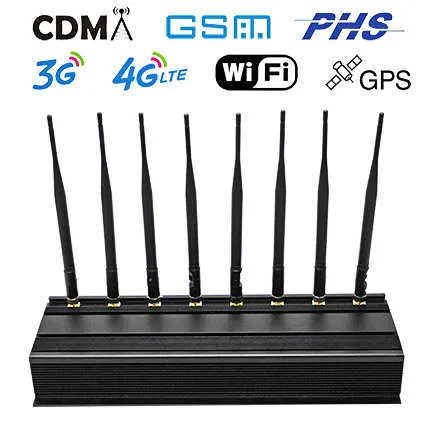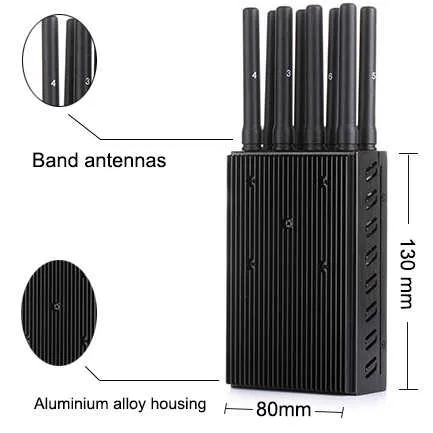Jammer Enforcement

Posted by jammer
from the Business category at
08 Aug 2023 03:19:41 am.
Federal law prohibits the operation, marketing, or sale of any type of jamming device that interferes with authorized radio communications, including cellular and personal communications services (PCS), police radars, and Global Positioning Systems (GPS).
No interference
Signal jamming devices can prevent you and others from making 9-1-1 and other emergency calls, pose a serious risk to public safety communications, and interfere with other forms of everyday communication.
The use of telephone cell phone jammer, GPS interceptors, or other signal jamming devices designed to intentionally block, interfere with, or interfere with authorized radio communications is a violation of federal law. There are no exemptions for use in businesses, classrooms, homes or vehicles. Local law enforcement agencies have no independent authority to use jamming devices; With certain limited exceptions, use by federal law enforcement agencies is authorized under applicable statutes.
It is also illegal to advertise, sell, distribute, import, or otherwise market jamming devices to consumers in the United States.
Using or marketing gps jammer in the United States may result in you being subject to substantial fines, confiscation of illegal devices, and criminal sanctions including imprisonment.
What if you think authorized communications are being interfered with
A poor network connection can be caused by a variety of factors, including equipment failure, physical obstacles that block the signal, or legitimate devices operating at the same frequency. Before filing a complaint, be sure to resolve your device and connectivity issues according to the recommendations of the manufacturer and service provider. In addition to consulting the user manual and the company's technical support, searching the Internet for your device/model and specific problems may help to identify or rule out possible causes.
File a complaint
Law enforcement officials: If you are a law enforcement professional and need assistance with interference or interference, please file a complaint through the FCC's Bureau of Enforcement's Public Safety Interference (PSIX-ESIX) portal at https://www.fcc.gov/. Then click on the PSIX - ESIX or directly to https://fccprod.servicenowservices.com/psix-esix. If interference or interference is an imminent threat to life, contact the FCC's 24-hour operations center at 202-418-1122.
Consumers: Service loss or disruption can occur for a variety of reasons. If you experience a problem with your service, your first action should be to contact your wireless provider to investigate the issue. You should also address your device and connectivity issues based on the recommendations of the manufacturer and service provider. If, after contacting your provider and confirming that the device and connection are not the cause of the interference, you still have reason to believe that someone is using the jammer, or if you want to report the sale, advertising, transportation, distribution, or import of the wifi blocker, you can file a complaint or question through the FCC Consumer Complaint Center. Method is to access the FCC consumer complaint center at www.consumercomplaints.fcc.gov (but can be by the FCC. Gov home page).
· In the "Consumer Complaint Center" page, select the "Phone" icon, then open the phone complaint form and file a complaint at the bottom of the page. (Regardless of the type of device affected, you should select "Phone.")
· Write "Interference" or "interference" in the subject box.
· In the "Telephone Problem" box, select "Interference" and then select "Signal Jammer" as the telephone interference sub-problem.
A complete description of the type of device experiencing the problem, the specific issue/symptom of each issue, the likely date, time, and duration of the event, and any actions taken to resolve the issue, including any assessment by the service provider.

Applicable law
Communications Act of 1934
- Section 301 - Requires persons operating or using radio transmitters to be licensed or authorized under the Commission's rules (47 U.S.C. § 301).
- Section 302(b) - Prohibits the manufacture, import, marketing, sale, or operation of signal jammers within the United States (47 U.S.C. § 302a(b)).
- Section 333 - Prohibits willful or malicious interference with radio communications of any station licensed or authorized under this Act or operated by the United States Government (47 U.S.C. § 333).
- Section 501 - allows for substantial fines and criminal sanctions, including imprisonment (47 U.S.C. § 501).
- Section 503 - Allows the FCC to impose forfeiture for willful or repeated violations of the Communications Act, rules, regulations, or related orders of the Commission, and violations of any license, certificate, or other terms and conditions authorized by the Commission, among other things (47 U.S.C. § 503).
- Section 510 - Allows seizure of illegal equipment (47 U.S.C. § 510).

Committee rules
- Section 2.803 - Prohibits the manufacture, import, marketing, sale, or operation of unauthorized equipment in the United States (47 C.F.R. § 2.803).
- Section 2.807 - provides for certain limited exceptions, such as sales to U.S. government users (47 C.F.R. § 2.807).
- U.S. Criminal law (enforced by Department of Justice or Department of Homeland Security)
- Chapter 18, Section 545, prohibits the importation of illegal goods into the United States; Operators may face fines, imprisonment, or both (18 U.S.C. § 545).
- Chapter 18, Section 1362 - Prohibits willful or malicious interference with U.S. government communications; Operators may face fines, imprisonment, or both (18 U.S.C. § 1362).
- Chapter 18, Section 1367(a) - Prohibits intentional or malicious interference with satellite communications, including GPS; Operators may face fines, imprisonment, or both (18 U.S.C. § 1367(a)).
Tags: jamming signal alert
0 Comments



